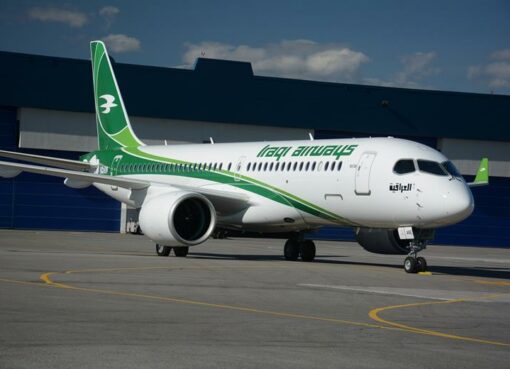Russia’s state oil company paid $250 million to an external consultant to help secure deals in Iraqi Kurdistan, according to documents that shed new light on transactions that have strengthened Moscow’s presence in the Middle East.
The fee was linked to deals that helped Rosneft become the dominant foreign player in the Kurdish oil industry. In the process, they drew Russia deeper into Iraq just as President Vladimir Putin was seeking to bolster the Kremlin’s position in the region at Washington’s expense.
The amount is large by the standards of financial advisory contracts. For comparison, the entire M&A advisory fees of the top 12 global investment banks in the Middle East and North Africa amounted to about $400 million last year, according to analytics firm Coalition Development Ltd.
The $250 million was paid over the course of 2017 and 2018 by the Russian oil company’s Swiss subsidiary, Rosneft Trading SA, the same unit the U.S. imposed sanctions on last month. The fee was disclosed a few weeks ago in the financial statements of a Singaporean subsidiary created by Rosneft as a holding company for its investments in Kurdistan. The consultant wasn’t named.
Rosneft said all deals were subject to inclusion in the consolidated accounts of the parent company, and those of its subsidiaries. It added: “In line with legal requirements, the reports go through all the necessary audits (including tests of whether information on completed deals is provided in full, and whether the deals are consistent with market conditions and are economically viable).”
A spokesman at the Kurdistan Regional Government’s finance ministry declined to comment.
Rosneft advanced as much as $3 billion to the government of Iraqi Kurdistan in exchange for future oil supplies in 2017 and 2018, providing important funds to the restive region of northern Iraq.
The investments came just as the Kurdish Regional Government launched an ill-fated attempt to secure full independence from Iraq, holding a referendum in September 2017 that provoked clashes with Baghdad.
As the Kurdish government sought to sell its oil independently of Baghdad, the semi-autonomous region became a magnet for some of the world’s largest oil traders. Oil revenues meant the region would depend less on Baghdad for funding, and the national government initially tried to block the sales with lawsuits to seize oil tankers.
It was February 2017 when Rosneft – whose CEO Igor Sechin is a close ally of Putin — first agreed to advance money to the Kurdish Regional Government in exchange for future oil supplies. The company said it had signed a contract for Rosneft Trading to buy Kurdish crude.
“This deal represents a new beginning in our relationship with Rosneft and opens up the possibility of a broader relationship in all fields of energy cooperation,” Kurdistan’s Natural Resources Minister Ashti Hawrami said in a statement at the time.
Rosneft later agreed to convert $1.8 billion of those advances into a 60% stake in the oil pipeline that’s the only route for the region to export its oil. The Russian company is getting a return of close to 20% on the Kurdish oil pipeline deal, Bloomberg has previously reported citing a person familiar with the deal. Rosneft also invested in five exploration assets in the region, as well as agreeing a plan to build a new gas pipeline, according to the company.
Rosneft’s relationship in Kurdistan was spearheaded by Rosneft Trading, which is the Russian company’s in-house trading unit. The Geneva-based unit and Chairman Didier Casimiro were both placed under U.S. sanctions last month for operating in Venezuela’s oil industry — part of Washington’s efforts to oust President Nicolas Maduro. Rosneft says the sanctions are illegal and it doesn’t violate any international or national law by operating in Venezuela.
Paid on ‘Success’
The $250 million was detailed in the financial statements of RN Middle East Pte Ltd in Singapore, dated Dec. 12, 2019 and audited by EY. In the RN Middle East accounts, the company said the fee was payable on the basis of “success,” and its size was relative to the value of Rosneft’s deals in Kurdistan.
Rosneft Trading SA in 2017 “entered into an advisory agreement with an external consultant for advisory services relating to Rosneft Group’s proposed concession agreement and Production Sharing Contracts (“PSCs”) with the Kurdistan Regional Government of Iraq (“KRG”),” according to the accounts.
“The advisory fee was agreed at US$250,000,000 and was fully paid by RTSA in 2017 and 2018. The advisory fees paid to the external consultant were negotiated based on the relative business value of the proposed concession agreement, PSCs and trading opportunities with KRG and are, in substance, payable on a success basis.”
The fee was included in the accounts of RN Middle East because in 2018 the unit reimbursed Rosneft Trading, with a mark-up. In turn, RN Middle East issued $262 million in new shares to its parent company, RN-Foreign Projects.
Rosneft’s board approved a contribution of $265 million to the capital of RN-Foreign Projects, according to an overview of Rosneft’s related-party transactions in 2018 that the company published separately. It’s not clear if there’s a connection with the RTSA advisory fee payment and Rosneft didn’t address the question in its statement.
Source: Bloomberg, 02.03.2020








Comment here